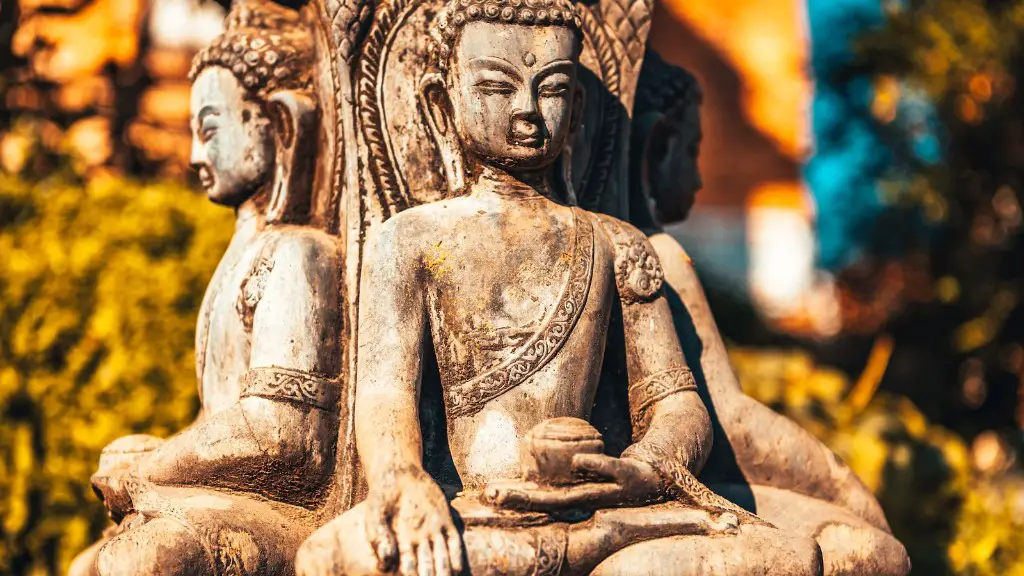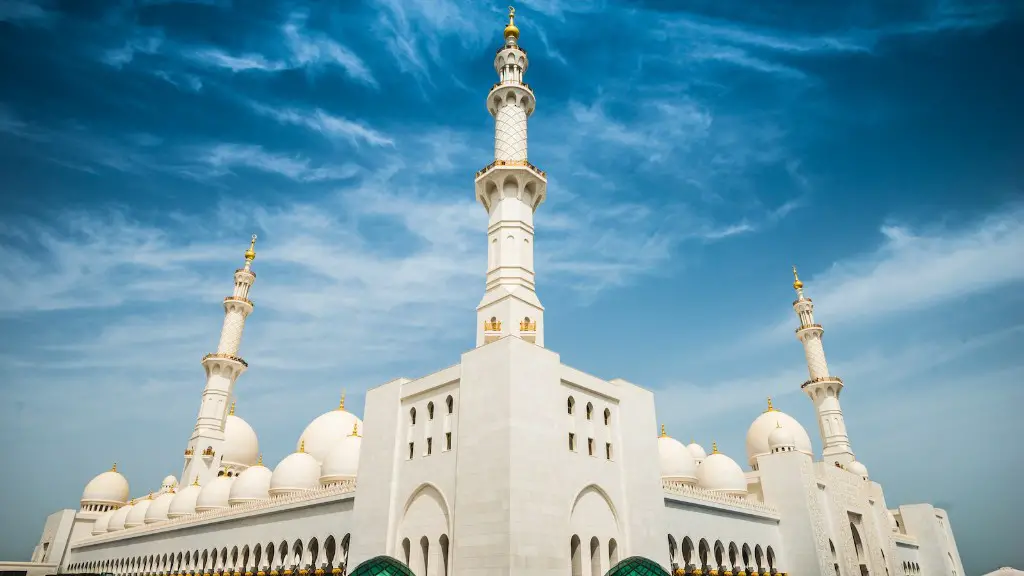Mahayana buddhism’s notion of emptiness is often misunderstood. To many, emptiness may sound like a negative or nihilistic concept. But in reality, emptiness is a rich and powerful teaching that can help us to live more fully in the present moment.
At its core, emptiness is the idea that all things are interconnected and interdependent. This means that nothing exists in isolation; everything is connected to something else. This includes our thoughts, feelings, and actions. Because everything is connected, our actions have the potential to impact others in a positive or negative way.
When we act with wisdom and compassion, we are acting in accordance with the interconnectedness of all things. We are recognizing that our actions have the potential to create suffering or bring about joy. And because we are all connected, we have a responsibility to act in a way that benefits others.
The teaching of emptiness can be a powerful tool for living a more mindful and compassionate life. It is a reminder that we are all connected, and that our actions can have a ripple effect on those around us. By acting with wisdom and compassion, we can create a positive impact on the world around us.
In Mahayana Buddhism, emptiness (sunyata) is the fundamental nature of all things. Emptiness is not a lack of something, but rather the absence of inherent existence. Things are empty of inherent existence because they are interdependent and lack inherent existence.
What is the Buddhist word for emptiness?
The word “empty” is used by the Buddha to describe an empty room. The word comes from the Pali word “sunna” or the Sanskrit word “shunya”. Sunna and shunya both mean “empty”.
Emptiness is a way of looking at experience without attaching any judgment or value to it. It is a way of seeing things as they are, without any mental or emotional filters. This can be a very liberating experience, as it allows you to see the world around you more clearly. It can also be a bit disorienting at first, as you may not be used to seeing things in this way.
What is the most important Mahayana Buddhism text that describes emptiness and others
Shantarakshita’s The Ornament of the Middle Way is among the most important Mahayana Buddhist philosophical treatises to emerge on the Indian subcontinent. The work is a thorough and detailed exposition of the Madhyamaka school of thought, and is essential reading for anyone interested in Buddhist philosophy.
Nagarjuna’s philosophy is often referred to as the “middle way” because it takes a middle ground between the two extremes of eternalism and nihilism. According to Nagarjuna, the truth is that all things are empty of inherent existence. This doesn’t mean that things don’t exist at all, but rather that things only exist in dependent relationships with other things.
This doctrine of emptiness is sometimes misunderstood to mean that everything is meaningless. But this is not the case. The emptiness of things simply means that they are not static and unchanging. Things are always in a state of flux, always changing and interdependent. This is the Middle Way between the two extremes of eternalism and nihilism.
What causes emptiness in a person?
There are a number of factors that can lead to a feeling of emptiness. These experiences might include the loss of a loved one, rejection or distinct difficulty finding meaning and fulfillment in their lives. Other factors that may lead to a feeling of emptiness include boredom, stress, communication issues and lack of emotional connection with others. If you are feeling empty, it is important to reach out to others and build meaningful connections. You may also want to seek professional help to explore the root cause of your feelings and work on ways to improve your overall sense of wellbeing.
If you’re feeling empty, there are a few things you can do to try and feel better. First, try to gently acknowledge the emptiness. This can help you to start exploring your current feelings and begin to connect with others. It’s also important to practice self-care and to save time for yourself every day. Finally, commend yourself for taking steps to try and improve your situation.
What is spiritual emptiness?
Dr Ananda’s comments suggest that individuals who struggle to stay in the moment or who feel a lack of meaning and purpose in their lives may be experiencing spiritual emptiness. This emptiness can lead to depression, which in turn can lead to the use of drugs and alcohol as a way to escape.
Buddhism sees the world as a realm of transmigration, or reincarnation (samsara), from which one may escape by attaining nirvana. In the Mahayana tradition, the emphasis is less on nirvana and more on knowledge or wisdom, the mastery of which constitutes awakening.
What is the most important virtue of Mahayana Buddhism
The virtue of compassion (karuṇā) is emphasised in all schools of Buddhism, but is particularly important in Mahāyāna traditions. Compassion is generally understood as the deep care and concern for the suffering of others. It is the motivating factor behind the Mahāyāna bodhisattva’s vow to forgo nirvana in order to work for the liberation of all beings. In the Mahāyāna tradition, the ideal of the bodhisattva is often contrasted with that of the śrāvaka (‘hearer’) or arhat, who is content to seek his or her own liberation. The bodhisattva, on the other hand, is motivated by compassion for all beings and takes on the responsibility of working for their liberation.
Mahayana Buddhists aspire to liberate not just themselves, but also all other beings, from the suffering of Samsara. This is in contrast to other schools of Buddhism, which focus primarily on individual liberation. Mahayana Buddhists believe that it is possible to attain Buddhahood in this lifetime, through their own efforts and the help of others.
What are examples of emptiness of life?
If you’re feeling empty, it means that you’re missing something that was once important to you. This can be caused by the loss of a loved one, a change in life circumstances, or simply the feeling that life lacks meaning. If you’re feeling empty, try to find something that can fill that void. Whether it’s a new hobby, a different kind of relationship, or simply a greater sense of purpose, finding something to fill the emptiness will help you feel better.
Chronic feelings of emptiness are a significant issue for people with Borderline Personality Disorder (BPD). These feelings have been linked to impulsivity, self-harm, suicidal behaviour and impaired psychosocial function. It is important to recognise and address these feelings in order to improve the quality of life for those with BPD.
How can emptiness be so heavy meaning
It’s easy to feel like you’re stuck in a rut when you’re feeling empty and unfulfilled. You may feel like you’re weighed down by the void, and it can be tough to find ways to be happy and fulfilled. However, it’s important to remember that you have the power to change your own life. You can take steps to fill the emptiness and make your life more meaningful. Try spending time with loved ones, pursuing hobbies and interests, or volunteering for a cause you care about. There are many ways to fill the void and find happiness. Emptiness does not have to be a permanent state. You can take control and make your life more fulfilling.
Loneliness can be a difficult and painful experience. It can make you feel like you’re not really connected to anyone or anything. If you’re feeling lonely, it’s important to reach out and connect with others, even if it feels difficult. There are many ways to do this, including joining a club or group, volunteering, attending social events, and reaching out to family and friends. There are also many online communities that can provide support and connection. The important thing is to take action and not let loneliness take over your life.
How do you fill the emptiness hole?
If you’re feeling empty, there are a few things you can do to try and refocus and rebalance yourself. First, take a look at your needs and see if there are any areas of your life that are lacking. If so, try to find ways to fill those needs, whether it’s through friends, family, or professional help. Second, take some time to appreciate and treasure the things you do have in your life. Third, never stop learning new things. Keeping your mind active and engaged will help you to feel more fulfilled. Finally, if you feel like you need professional help, don’t be afraid to ask for it.
A high self-esteem is important because it means that you like and respect yourself. It is a major part of good mental health, and it can help you in many aspects of life. People with high self-esteem are more likely to be successful and happy. They tend to have healthier relationships and cope better with stress. If you have low self-esteem, it can lead to problems such as depression, anxiety, and substance abuse.
What is the difference between emptiness and void
The Void is the space between what once was and what could be. It is the space of possibility and potential. It is the space of healing and transformation.
Shu was one of the most important gods in the Egyptian pantheon, revered for his role in creating the world and maintaining the balance between the forces of good and evil. He was also venerated for his ability to calm the fierce winds and bring peace to the chaotic world.
Warp Up
Emptiness is a central concept in Mahayana Buddhism. It is the nature of all things, including the self. All things are empty of inherent existence. This means that they do not exist independently, but are dependent on other things for their existence. This emptiness is not a void, but is the true nature of things. It is often described as the emptiness of form, which means that things are empty of a permanent, unchanging essence.
Mahayana Buddhism upholds the belief that ultimate reality is emptiness. This means that things are not really solid and permanent, as we often think they are. Rather, everything is in a constant state of change and flux. This understanding can help us to let go of our attachment to things, and to see things as they really are.

